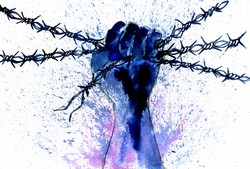Human rights after dictatorship
The EU-funded project GRHR ('The Greek case' in the 'age of human rights': Reciprocal challenges and mutual effects of the Greek colonels' dictatorship and the evolution of the international human rights regime) began with conducting over 30 interviews related to the Greek case. Multilingual archives were also researched, including institutional, national, international and private sources. What was evident is that the resisters managed to influence powerful campaigns. As such, torture became known as being one of the worst human rights abuses. Archival findings were successful and compiled into a long list. Some included the archives of the Council of Europe, the International Committee and the Red Cross. An additional success was the discovery of an archive that revealed one of the most active resisters to the regime, which involved not only human rights but also environmental protection. Three articles have been produced with plans for publication. A book proposal has also been endorsed by Cambridge University Press. The work will help contribute human rights concerns from norm into practice in the area of human rights.







